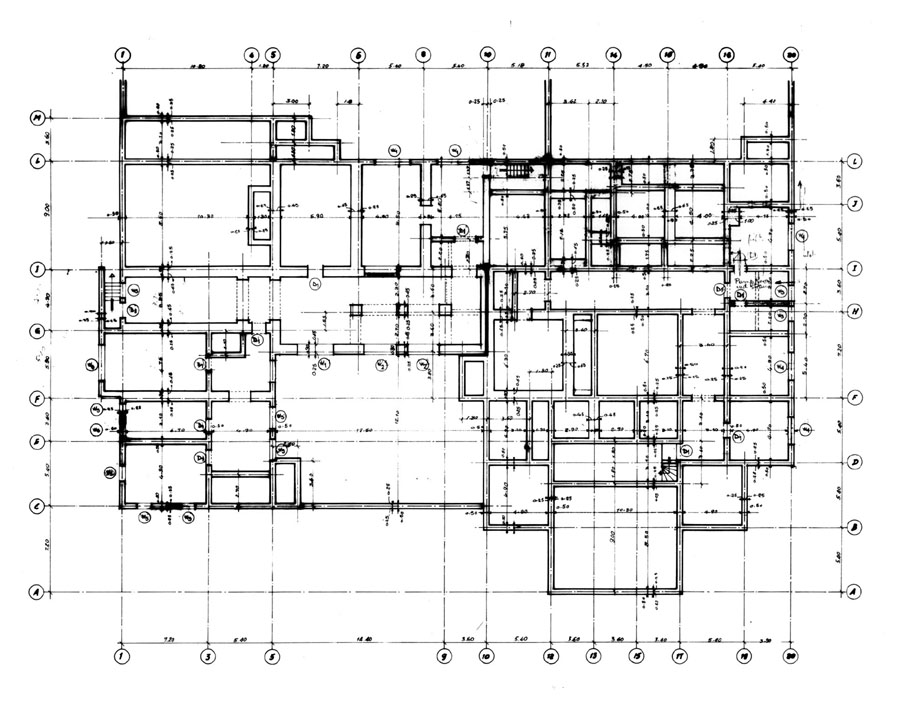Full plans application
The Building Regulations set out what qualifies as ‘building work’ and so falls under the control of the regulations, the notification procedures that must be followed when starting, carrying out, and completing building work, and requirements for specific aspects of building design and construction. Building Regulations approvals can be sought either from the building control department of the local authority or from an approved inspector.
There are two possible routes for obtaining building regulations approval:
- Generally, on larger new-build projects, a 'full plans' application will be made, meaning that full details of the proposed building works are submitted for approval before the works are carried out.
- On small projects, or when changes are made to an existing building, approval may be sought by giving a 'building notice'. In this case, a building inspector will approve the works as they are carried out by a process of inspection.
When submitting a full plans application, a completed application form should be included along with the appropriate charge that is required. A location plan or block plan (to scale 1:1,250) is required if the project is a new building or extension. In addition, two copies of the plans, with floor plans, elevations and sections (to scale no less than 1:100) should be included. These may need to ba accompanied by supporting calculations such as structural calculations.
On receiving the application, the local authority will check the plans and, if appropriate, consult other relevant authorities, e.g. fire, sewerage, health, etc. They must issue a decision within five weeks or a maximum of two months from the date of deposit (if an extension is agreed by the applicant). NB: Where demolition work is proposed, the owner must give the local authority building control department six weeks’ notice under Section 80 of the Building Act.
If the submitted plans are deemed to comply with the building regulations, then a notice will be issued stating that they have been approved. Alternatively, applicants may be requested to make amendments or provide further details. A conditional approval might also be issued which requests further plans to be submitted or modifications to be made before approval can be formally given. If the application is rejected then the reasons will be stated in the notice.
In the event of disagreement about an approval, a ‘determination’ can be sought (before the works start) from the Secretary of State for Communities and Local Government or from Welsh Ministers in the Welsh Assembly Government. It is also possible to seek relaxation or dispensation of the regulations from the building control department of the local authority under certain circumstances (see Department for Communities and Local Government guidance).
Full plans approvals are also subject to inspection during the course of the works at stages decided by the local authority (typically during the construction of foundations, damp proof courses and drains and perhaps other key stages), but as long as the work is carried out in accordance with the approved design, the risk of problems is very much reduced compared to a building notice application.
A full plans approval notice is valid for three years from the date of deposit of the plans. This can be very important given the speed at which the regulations change, meaning that a building which has been approved, but not built may require re-design and further approval if construction is delayed and the regulations change. If the three years expires without building work commencing, the local authority may send a notice to declare that the approval is ‘of no effect’, i.e. is no longer valid.
Failure to comply with the Building Regulations can result in a fine and/or an enforcement notice requiring rectification of the works. There is also a regularisation process for getting approval for works that have been carried out without approval.
[edit] Related articles on Designing Buildings Wiki
Featured articles and news
The first line of defence against rain, wind and snow.
Building Safety recap January, 2026
What we missed at the end of last year, and at the start of this...
National Apprenticeship Week 2026, 9-15 Feb
Shining a light on the positive impacts for businesses, their apprentices and the wider economy alike.
Applications and benefits of acoustic flooring
From commercial to retail.
From solid to sprung and ribbed to raised.
Strengthening industry collaboration in Hong Kong
Hong Kong Institute of Construction and The Chartered Institute of Building sign Memorandum of Understanding.
A detailed description from the experts at Cornish Lime.
IHBC planning for growth with corporate plan development
Grow with the Institute by volunteering and CP25 consultation.
Connecting ambition and action for designers and specifiers.
Electrical skills gap deepens as apprenticeship starts fall despite surging demand says ECA.
Built environment bodies deepen joint action on EDI
B.E.Inclusive initiative agree next phase of joint equity, diversity and inclusion (EDI) action plan.
Recognising culture as key to sustainable economic growth
Creative UK Provocation paper: Culture as Growth Infrastructure.
Futurebuild and UK Construction Week London Unite
Creating the UK’s Built Environment Super Event and over 25 other key partnerships.
Welsh and Scottish 2026 elections
Manifestos for the built environment for upcoming same May day elections.
Advancing BIM education with a competency framework
“We don’t need people who can just draw in 3D. We need people who can think in data.”





















